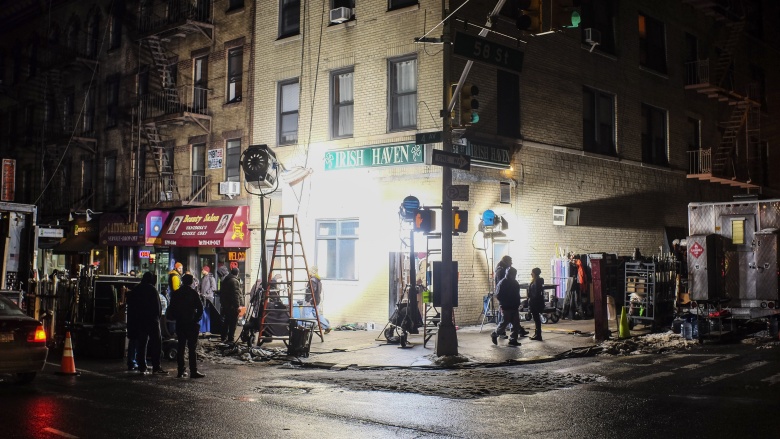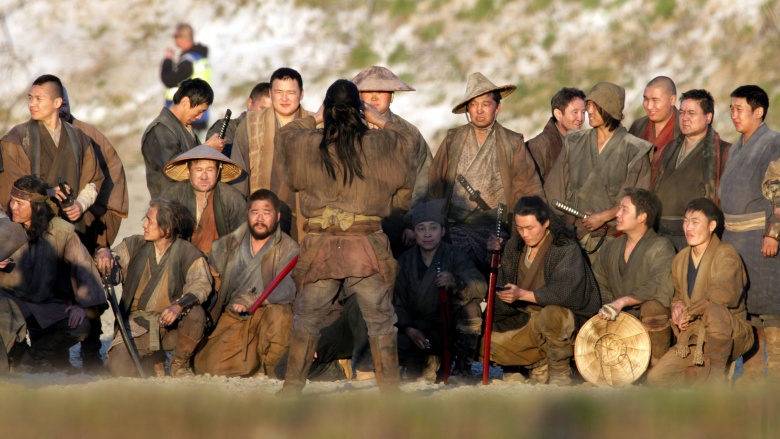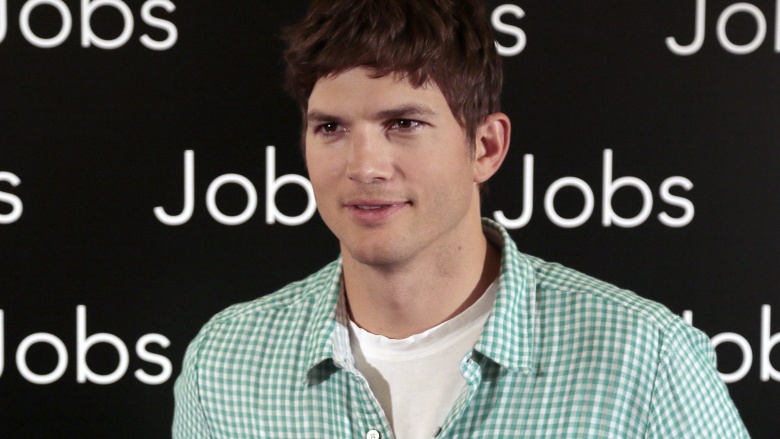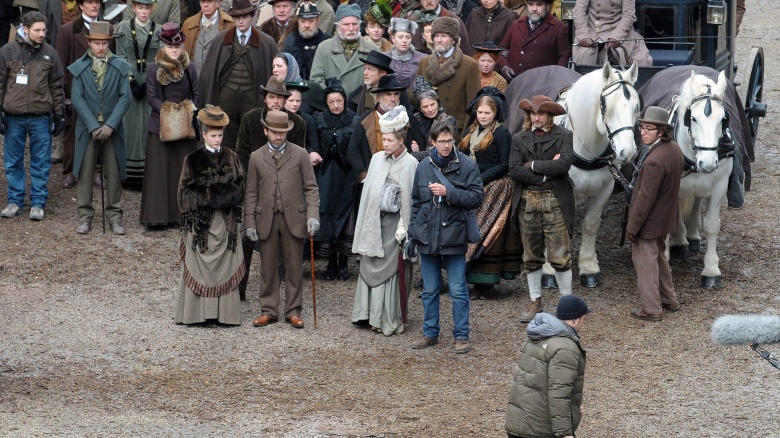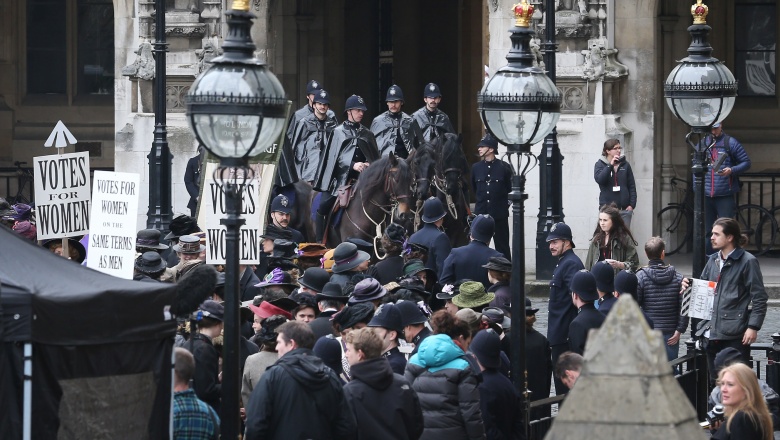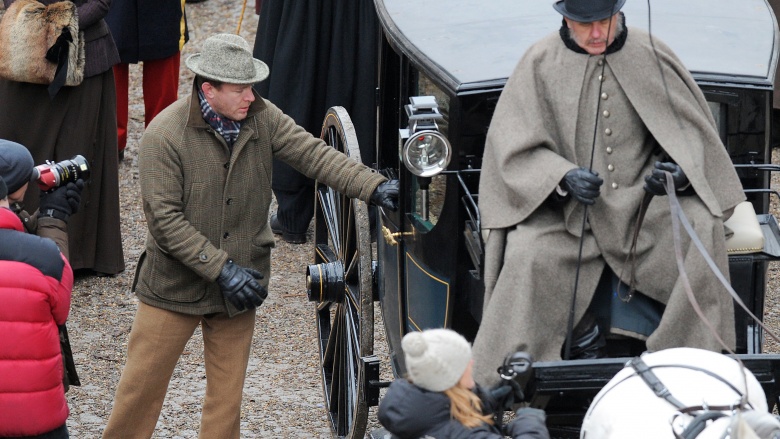Weird Things You Never Knew About Movie Extras
People often look at movie extra work as a glamorous, easy first step toward fame and fortune, but it couldn't be any farther from that. Acting as a bystander in the background of a movie or television scene can be pretty mundane, even hellish at times. Here are just a few things we've found out about movie extra work from people who've done it.
The hours are long and the pay is minimal
People often think of extra work as an easy way to make money. One-time extra Maura Kutner found out the hard way that it's not always true when she agreed to be an background character in an unnamed Angelina Jolie flick. Kutner told Marie Claire that her call time (which was when she needed to be in wardrobe to get ready, not the time she was supposed to show up on set), was 7:15 a.m., and sometimes even earlier. And she needed to expect at least a ten-hour-long work day. To top it off, she was told she'd only make about $80, before taxes, for her day's work. Even worse, lunch wasn't until 2:30 p.m., which is when Kutner decided to skip out on the rest of the day's work and "literally ran home."
The food isn't that great either
In addition to the gruelling hours, extras aren't fed all that well on set. Kutner also mentioned that, while extras do get fed breakfast on set, it's far from being the heartiest meal of the day. A small, cold scoop of oatmeal is all they offered to get her through the morning. When it was time to break for lunch, about seven hours later, she was left to her own devices to get sustenance. Luckily for her, the movie she was extra-ing for was filmed in New York, where there's some kind of food cart on every corner. It's sad that with all of the money that gets sunk into these films, they still leave you on your own for lunch.
They don't always get to meet the stars
Lizzie Cahill is probably one of the more fortunate extras to work in Hollywood. Cahill, who worked as an extra on both Gods of Egypt and Baz Luhrman's The Great Gatsby, had wonderful encounters with Tobey Maguire and Gerard Butler while working on each film. She claims that both of them are incredibly nice. However, she didn't get a chance to talk to Gatsby star Leonardo DiCaprio at all. According to what Cahill told News.com.au, she was ordered, "Don't look at him, don't speak to him, don't go near him." Unfortunately, the Oscars have the same mentality when it comes to Leo.
Extras are why epics rarely get made
Certain movie scenes require huge amounts of extras. The chariot scene in Ben Hur used 15,000 extras. The funeral scene in Gandhi required 300,000. That's a lot of people, which costs a lot of money, even if most of the extras aren't paid well. Because of this, Hollywood epics are becoming more and more a thing of the past. That, or shortcuts are used. According to The Telegraph, some movies digitally create extras, like in Gladiator, where one scene used about 2,000 real people, and the rest of the 35,000 people in the background were CGI-ed into the scene. Other times, cardboard cutouts and inflatable extras are used. These actions cut down on costs, and we're sure it does wonders for paring down the complaints directors have to hear.
The work can be boring
Gizmodo writer Cord Jefferson had the opportunity to work as an extra on Jobs, starring Ashton Kutcher. Maybe "opportunity" isn't the right word, because Jefferson described the experience as "11 Hours of Hell." Apart from the bad day he had to begin with, Jefferson had to listen to Kutcher repeat a speech 26 times over the course of three hours, which is typical for a movie set experience. This particular part of the day left Jefferson thinking, "Upon hearing an actor give an old speech that was pretty dull to begin with for the tenth, eleventh, twelfth time, you start to realize that maybe not being a movie star ain't so bad." Jefferson says that now, but we're sure he'd change his mind if he got paid what Kutcher did.
Getting a lot of extra work can be detrimental
Some extras wind up working in hundreds of movies and television shows. We thought it might look good on the extra's IMDb page, but that's not always the case, at least not according to what Andrew Goldfarb told Slash Film. After college, Goldfarb worked as an extra for about four years, scoring work on shows like Gossip Girl and movies like Sherlock Holmes and Indiana Jones and the Kingdom of the Crystal Skull. But he didn't want everyone to know about it, and not just because the last Indy movie was so horrible. Goldfarb said, "many casting directors don't like to cast you in a project you've already appeared in," so he had to alter his records just a little bit in order to score extra gigs in the same film. It's strange when a guy has to lie to his bosses to get more work.
Working as an extra is no way to jump-start an acting career
Many Hollywood hopefuls flock to background work, hoping to get noticed and hired for more prominent and better-paying roles, but that rarely happens. Backstage spoke with 14 various industry professionals about whether or not working as an extra can lead to fame, and almost all of them gave a resounding "No." Each person said it was a good way to get experience by working on a movie set, but that was about it. LA-based manager Joan Sittenfeld said extras are "by nature, designed to be part of the background," for the most part. In other words, if you're an extra, you're expected to stand around and be quiet while the important people do all the real work.
It can be soul-crushing for casting directors too
Working as an extras casting director can result in asking some pretty embarrassing, maybe even insulting, questions to potential extras. Such was the case for Mihal Freinquel, who was once tasked with casting extras for Law & Order: Special Victims Unit. It doesn't sound like much of a task, until you realize that Freinquel had to cast an elderly, African American man who knew how to shine shoes. Freinquel told Buzzfeed that after the first call, she began to have reservations, thinking "Did I just ask an old black guy if he knew how to shine shoes? Dumping him like a bad date when he said no?" Her boss basically told her to get over it and keep calling other potential extras. Looks like political correctness hasn't reached every part of our society just yet, especially Hollywood.

